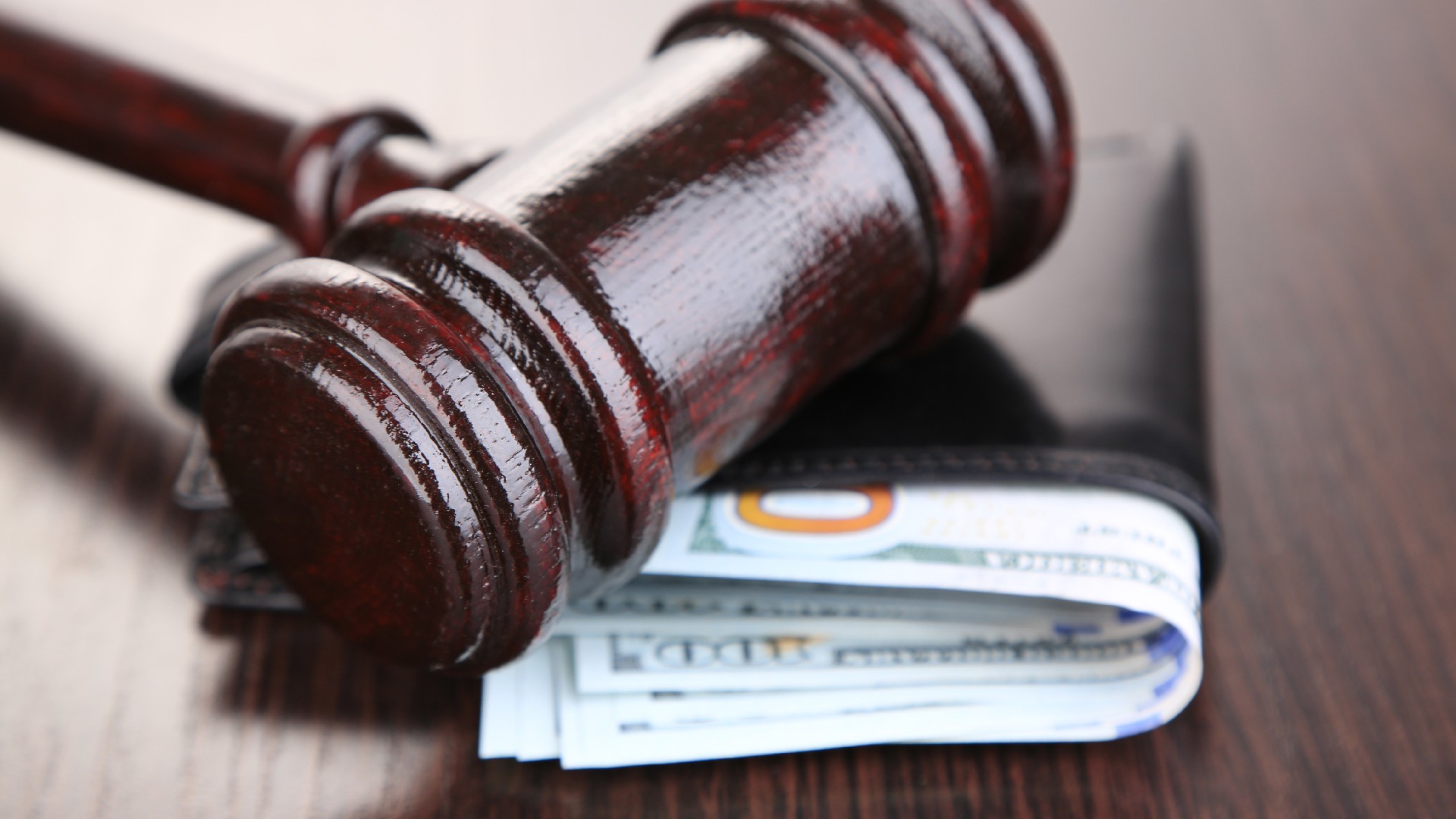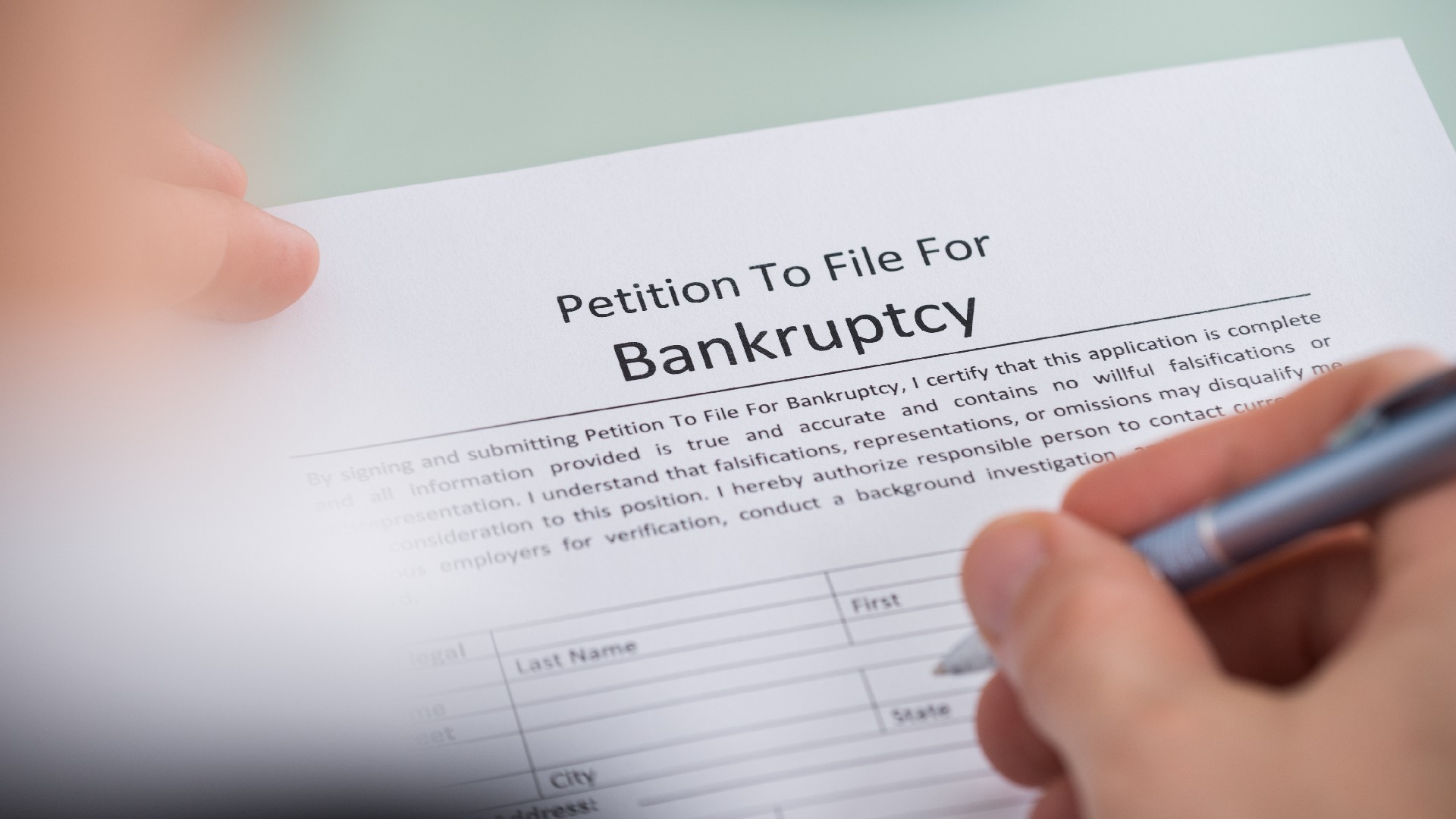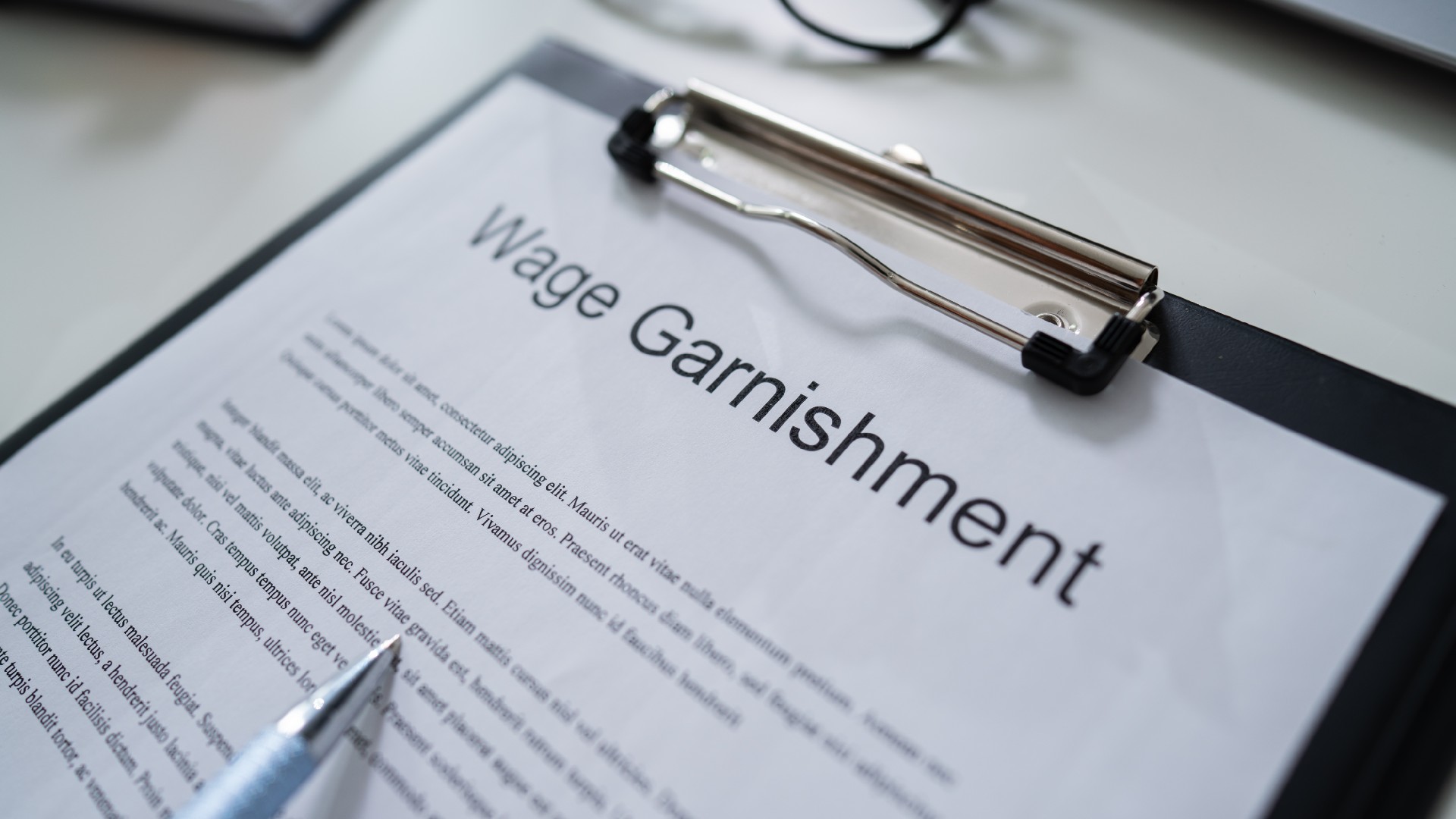Wage Garnishment Lawyers in Texas
Our Lawyers Can Help You Stop Wage Garnishment
- Stop creditors from garnishing your wages
- Get help overcoming debt and financial hardship

If you’re struggling to keep up with paying your debts, wage garnishment can make covering even the most basic living expenses challenging. At Leinart Law Firm, our wage garnishment attorneys offer effective solutions to get rid of garnishment orders and wipe out or restructure your debts. Our Texas bankruptcy lawyers do a thorough assessment of your financial circumstances and help you understand everything you need to know about wage garnishment. We give you options and sound strategies to help you achieve your best financial outcome.
Wage Garnishment Lawyers in Texas
- What Is a Wage Garnishment?
- Wage Garnishment in Texas
- Can My Wages Be Garnished to Repay Credit Card Debt?
- Federal Wage Garnishment Laws
- Will Bankruptcy Stop Wage Garnishment?
- Which Debts are Non-Dischargeable in Bankruptcy?
- How Do I Know If My Wages Will Be Garnished?
- How Can I Stop or Dispute Wage Garnishment in Texas?
- Getting Rid of Wage Garnishment
- Our Experienced Bankruptcy Attorneys Fight for Your Rights
- Schedule a Free Consultation with Our Texas Wage Garnishment Lawyers
What Is a Wage Garnishment?
Wage garnishment is a common method of debt collection employed by aggressive creditors. When you owe someone a debt, they may file for a court order that authorizes them to take funds right out of your paycheck. This process is known as wage garnishment.
The court sends a notification to your employer, who then withholds a certain amount of money from your paycheck and sends that money to your creditor until the debt is paid off. Depending on where you live, limits on wage garnishment only include a certain percentage of your net disposable (after tax) income. Garnishment laws vary by state, so it’s important to make sure you hire an experienced Texas debt attorney who is familiar with the nuances of state laws.
Wage Garnishment in Texas

Knowing how wage garnishment laws work in Texas can give you a better understanding of the available options to stop it. Limits on wage garnishment amounts in Texas vary, depending on the type of debt. For child support or alimony, a creditor can garnish up to 50% of your disposable income. It’s also important to note that Texas law allows state and local governments to garnish wages without a court order.
If you’re dealing with wage garnishment, you may be confused, afraid and unsure about how it will affect your financial future. Our Texas credit attorneys are well-versed in federal and state bankruptcy and consumer protection laws. We can help you learn about wage garnishment judgments and advise you of the most effective options to move forward.
Can My Wages Be Garnished to Repay Credit Card Debt?

Texas does not allow wage garnishment for credit card debt, personal loans, auto loans, medical debt and other types of consumer debt, even if a judgment is filed against you. In fact, most creditors cannot garnish your wages in Texas unless it’s for domestic support, back taxes or defaulted federal student loans.
However, creditors may still be able seize or place liens on other assets, such as monies in bank accounts. If you work for an out-of-state company and are paid from a source outside of Texas, a creditor might still be able to garnish your wages. These cases and the laws surrounding these issues can often be convoluted. Our bankruptcy attorneys know how to sort it all out and ensure your rights and interests are protected.
Federal Wage Garnishment Laws

For debts that do not involve domestic support orders, federal law limits how much creditors can take out of your paycheck. The amount is limited to 25% of your net earnings or 30 times the minimum wage, whichever is lower. However, these limits can vary by state as well.
If your wages are being garnished for federal back taxes, the amount the IRS can withhold varies, depending on the number of dependents you claim and your deduction rate.
If you have defaulted on federal student loans, the Department of Education can take up to 15% of your net income or 30 times the minimum wage. However, during the COVID-19 pandemic, the Department of Education halted garnishment on federally held student loans through September 30, 2021. The ED will also return any wages they received from garnishment between March 13, 2020, and September 30, 2021.
If you fall into this category, it’s important to check and make sure you were refunded these garnished wages. Our Dallas law firm handles all aspects of wage garnishment and can help you recover any funds to which you may be entitled.
Title III of the Consumer Credit Protection Act requires that you be left with enough income to cover basic living expenses, but for many living paycheck to paycheck, even a small garnishment amount can have big consequences. There are some types of debts that are protected from garnishment, but this area can get a bit complicated, especially with ever-changing consumer credit laws related to the COVID-19 pandemic. If you have specific questions about the law, it is best to ask your Texas debt attorney.
Will Bankruptcy Stop Wage Garnishment?

Eliminating wage garnishment is a major reason to file bankruptcy. Thanks to automatic stay regulations, creditors must cease all debt collection attempts once the appropriate bankruptcy paperwork has been filed. This gives you a chance to get your finances back on track without impeding your ability to pay necessary daily expenses.
However, certain types of debts like child support must continue to be paid throughout the bankruptcy process. These “priority debts” often fall outside the purview of the automatic stay. Our Fort Worth bankruptcy attorneys can help you understand the limits of the automatic stay, help you restructure loan agreements when possible and determine which type of bankruptcy will best meet your needs.
Safeguarding Your Income: Understanding Common Causes Of Wage Garnishment
At Leinart Law Firm, our Wage Garnishment Lawyers in Texas believe in empowering individuals to protect their hard-earned income. Wage garnishment can be a financial strain, but understanding the common reasons behind it can help you take proactive steps to avoid this situation. Let’s explore key triggers and proactive measures to steer clear of wage garnishment:
- Unpaid Taxes:
Failing to fulfill your tax obligations can lead to wage garnishment. To avoid this, ensure timely and accurate filing of your tax returns. If you’re facing tax challenges, seek professional advice to address and resolve tax-related issues promptly. In some cases, professional guidance is able to waive certain tax issues.
- Outstanding Child Support:
Non-payment of court-ordered child support can result in wage garnishment. It’s crucial to stay current with child support payments. If financial circumstances change, explore legal avenues to modify support arrangements rather than falling behind.
- Delinquent Student Loans:
Defaulting on student loans can trigger wage garnishment. Stay proactive by exploring deferment or income-driven repayment options. Communicate with your loan servicer to find a solution that aligns with your financial circumstances.
- Consumer Debt Judgments:
Creditors may pursue legal action, obtaining judgments that lead to wage garnishment. Timely payment or negotiation with creditors can prevent judgments. Consult with Texas Wage Garnishment Lawyers to explore debt settlement and repayment options.
- Unpaid Court-Ordered Debts:
Failure to satisfy court-ordered debts, such as damages in a civil lawsuit, can result in wage garnishment. Seek legal advice to negotiate manageable repayment terms and prevent escalated legal actions.
- Alimony and Spousal Support Arrears:
Falling behind on alimony or spousal support payments can lead to wage garnishment. Regular communication with your ex-spouse and legal professionals can help address financial challenges and prevent legal actions.
- Bankruptcy Discharge Violations:
Ignoring the terms of a bankruptcy discharge can result in wage garnishment. Comply with court orders, and seek legal advice if you face challenges in meeting post-bankruptcy obligations.
- Defaulted Auto Loans:
Vehicle repossession and subsequent deficiency judgments can lead to wage garnishment. Stay current on auto loan payments or explore refinancing options to prevent financial setbacks.
- Unpaid Medical Bills:
Neglecting medical bill payments can result in debt collection and potential wage garnishment. Communicate with healthcare providers to arrange manageable payment plans and avoid escalated actions.
- Overdue Child Support Enforcement Penalties:
States impose penalties for non-compliance with child support orders. Stay informed about your obligations, promptly address discrepancies, and seek legal guidance if enforcement actions are imminent. Our firm has helped many individuals face wage garnishment issues and how it pertains to child support.
Conclusion:
Understanding the common triggers for wage garnishment empowers you to take proactive measures. At Leinart Law Firm, our team of Texas Wage Garnishment Lawyers is here to guide you through financial challenges and explore legal strategies to protect your income. Contact us today for a personalized consultation, and let’s work together to safeguard your financial well-being.
Which Debts are Non-Dischargeable in Bankruptcy?

Although filing bankruptcy in Texas halts the collection of certain types of debt, your wages can continue to be garnished for non-dischargeable debts such as:
- Many types of taxes
- Child support or alimony
- Attorney fees for child custody or support
- Student loans
- Fines and penalties owed to government agencies
- Criminal fines, court fees and restitution
- Personal injury debts due to a DWI accident
- Debts related to tax-advantaged retirement plans
- Condo or cooperative housing fee debts
- Debts that were left off your bankruptcy petition, unless the creditor is aware of your filing
Other categories of debts — such as those associated with fraud or debts incurred due to willful and malicious injury — must be successfully challenged by creditors during bankruptcy to be considered non-dischargeable. If a creditor does not object or the court disagrees with the creditor, the debt will be discharged and your wages will no longer be garnished to pay these debts.
How Do I Know If My Wages Will Be Garnished?

In most cases, a lender or creditor has to file a lawsuit against you for a wage garnishment to occur. Even though a creditor like the IRS is not required to file a lawsuit, they are required to send written notice before the garnishment begins.
Of course, if your employer receives notice that your wages are to be garnished, they should notify you right away. It’s also important to keep in mind that employer retaliation for wage garnishment is against the law. There are many factors that can come into play, so if you get notice that a lawsuit has been filed against you or your wages are going to be garnished, it is crucial to seek legal advice right away.
How Can I Stop or Dispute Wage Garnishment in Texas?

Once a wage garnishment judgment is made, it is hard to overturn. If you want to dispute wage garnishment, you must file papers with the court. At the court hearing, you can present evidence that you cannot pay the garnishment amount due to financial hardship. The judge will decide whether to end the wage garnishment or leave it in place.
If you are able, paying off the debt as soon as you can is the easiest way to stop garnishment and collect your full paycheck. If repaying the debt isn’t a possibility, our Dallas bankruptcy attorneys can assess your circumstances and help you find other debt relief solutions.
Getting Rid of Wage Garnishment

If you want to do more than temporarily halt wage garnishment, filing for bankruptcy in Texas is most likely your best option. When you file bankruptcy, the automatic stay will also force creditors to stop actions such as:
- Repossession
- Foreclosure
- Collection calls and correspondence
- Lawsuits
When wage garnishment has a serious impact on someone’s finances, they often have other money problems to deal with, such as overwhelming credit card debt. In Chapter 7 bankruptcy, most unsecured debts can be completely wiped out. Chapter 13 bankruptcy lets you reorganize your debts into a manageable three to five-year payment plan. It can also significantly reduce your total amount of outstanding debt and help you save on interest.
Our Experienced Bankruptcy Attorneys Fight for Your Rights

At Leinart Law Firm, we know you work hard for your money and want to help you keep as much of it as possible. If creditors are garnishing your wages or bank accounts, our attorneys know exactly which legal protections you may be granted under Chapter 7 bankruptcy or Chapter 13 bankruptcy laws. Our skilled bankruptcy attorneys look at the big picture of your financial circumstances and can help determine which debt relief options may help stop wage garnishment and get you on the road to financial stability.
Schedule a Free Consultation with Our Texas Wage Garnishment Lawyers

With more than 15 years of experience in debt solutions and bankruptcy law, our team at Leinart Law Firm has helped thousands of Texans make a fresh financial start. To learn more about wage garnishment, bankruptcy and credit repair, contact us to schedule a free case evaluation. You can email us, use our convenient chat feature or fill out the contact form on our website to get in touch. Our bankruptcy attorneys serve clients in Dallas, Fort Worth, Plano and throughout north Texas.



